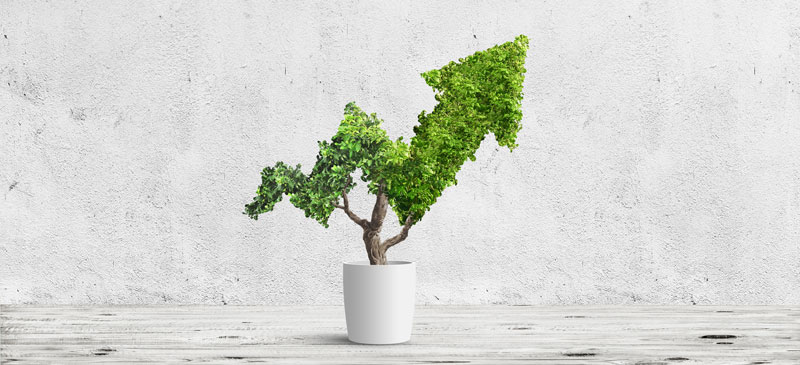What we have set ourselves
At Fraunhofer ISC, we are actively committed to making a significant contribution to a sustainable and climate-neutral future.
In order to make our activities at the site sustainable, we have started to record all relevant aspects of our activities. As a first step, we have identified the key sustainability issues for us based on our greenhouse gas accounting (in accordance with the GHG Protocol).
Our areas of work, which include materials, processes, analytics and applications, have the typical environmental impact of an innovative chemical company. Our research is associated with a high consumption of energy (electricity and heat), water and other resources and involves the use of bio- and hazardous substances, which results in corresponding waste. Further CO2 emissions are caused by the consumption of electricity and heat as well as by employee mobility, including business trips and commuting.
The task now is to define appropriate measures to ensure a continuous and sustainable focus.
Our long-term goals are based on reducing greenhouse gas emissions, improving energy efficiency, promoting renewable energies and reducing waste.
We are already working on implementing an energy management system in accordance with DIN EN ISO 50001. We have drawn up a list of measures as part of the introduction process. The next step will be a financial and technical assessment before a step-by-step implementation begins. The use of photovoltaics on suitable roof areas is already in the final planning stage. We are also actively involved in the Fraunhofer Energy Efficiency and Climate Protection Network, which promotes support in building up process knowledge as well as mutual assistance and cooperation.
In addition to energy savings, we pursue a holistic approach that aims to enable the organization and our employees to align their internal structures and processes with sustainability.

 ©AdobeStock
©AdobeStock

